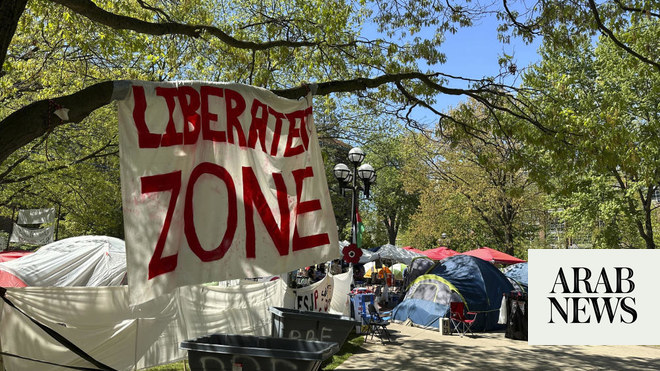
The Sydney Theatre Company has issued a third public apology after the on-stage pro-Palestinian protest by several actors during opening night of Chekhov’s The Seagull.
It comes as a second board member resigned.
The protest, which saw three of the production’s cast members drape themselves in traditional keffiyeh headdresses during last Saturday’s curtain call, has attracted polarising debate on social media and prompted one of the theatre company’s foundation board members to resign.
On Thursday, STC management issued an apology for cancelling Wednesday night’s performance at short notice, when some patrons were already seated inside the Roslyn Packer Theatre.
A company spokesperson said the decision to cancel was made out of concern for the actors’ wellbeing.
“STC made the decision to cancel the performance at short notice from a duty of care perspective,” the statement said.
“We understand that this caused significant inconvenience to many audience members and we sincerely apologise.”
The statement said the remaining season of The Seagull was scheduled to continue as planned.
Sign up for Guardian Australia’s free morning and afternoon email newsletters for your daily news roundup
One of the STC’s longstanding foundation board members, public relations executive Judi Hausmann, has resigned over the protest.
And late Thursday, it was confirmed that Alex Schuman, the chief executive of fashion house Carla Zampatti, has also stepped down from his role as a Sydney Theatre Company Foundation director following the protest. The STC confirmed Schuman, who is the brother of Wentworth Independent MP Allegra Spender and fashion designer Bianca Spender, had resigned.
Hausmann had requested STC management take a “one-night pause” of the production after the onstage protest to give the company time to draft a “resolution that would be acceptable to all parties”.
“I never imagined my resignation would be necessary because I’m a Jew,” she wrote, according to The Australian, who obtained a copy of the resignation letter.
The Monday evening performance of The Seagull went ahead as scheduled, with STC management issuing a statement the same day saying the company had not been aware of the protest before it happened and apologising for “any distress caused”.
On Wednesday a second apology was issued, acknowledging that the actors’ actions and the STC’s immediate response had “hurt many in our community”.
“For this, we are deeply sorry,” the statement said, adding that while the company supported individual freedom of expression, it also believed that the right to free speech “does not supersede our responsibility to create safe workplaces and theatres”.
The three actors who took part in the pro-Palestinian protest were Megan Wilding, Mabel Li and Harry Greenwood, the son of actor Hugo Weaving who sits on the same STC foundation board as Hausmann did.
Guardian Australia has sought comment from the artist management company Shanahan, which represents Greenwood and Weaving, and the agents representing Wilding and Li.
The Seagull cast members’ protest is the latest action by artists and entertainers weighing in on the Israel-Hamas war. Collecting his album of the year award at the 2023 Aria music awards on 15 November, the rapper Genesis Owusu called for a ceasefire in Gaza during his acceptance speech.
On Sunday the singer-songwriter Deborah Conway wore a Star of David pendant and colours of the Israeli flag while performing at Mushroom Records’ 50th anniversary concert at Melbourne’s Rod Laver Arena. According to Channel Seven, more than 800,000 people watched the broadcast on the network.
Conway subsequently posted a photo and a lengthy statement on Facebook, saying: “We wore what we wore as an act of solidarity, of defiance, of kinship.”










